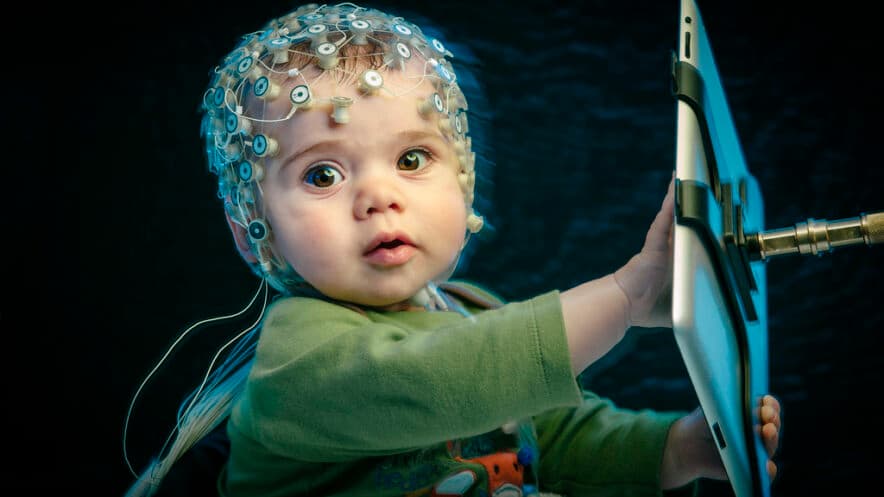Research
Bath University opens a Babylab to study early childhood development

Freya Lucas
Jul 04, 2023
Save
A new laboratory at the University of Bath in England will explore how early years development is affected by the modern world, with researchers hoping to understand more deeply how babies interact with their environment, the BBC has shared.
The Bath Babylab will study issues such as how screen time impacts attention and cognitive development as well as exploring the factors that impact how long babies sleep for, and how they acquire language skills.Researchers will also look into other factors in early development which may impact on conditions like autism and attention deficit hyperactivity disorder (ADHD).
Senior lecturer Dr Rachael Bedford is leading the research at the Babylab, and hopes that the work she and her team are conducting will be useful to parents and those in the the early childhood field more broadly.
Some of the latest research from the team has suggested that high levels of screen time may be linked to children having difficulties with executive functions including meeting goals, maintaining self control, following instructions and remaining focused.
Ten-month-old Darcie is one of the first children taking part in the research being done at the lab, attending with mother Sophie.
Darcie took part in a test involving watching pictures of fruit on a computer screen. Tracking equipment linked to a sticker on her forehead monitored how quickly her eyes went to the red apple among a number of blue apples.
“Children who use touch screens are a lot faster to find that red apple when it's among the blue apples,” Dr Bedford explained.
"What we don't know yet is how that might look in the real world when we generalise beyond the computer, and whether that might make them more distractible when something in the environment is bright and shiny like that red apple…Does that grab their attention in a similar way?"
Darcie's mum Sophie is eager to hear the outcome of such research, saying the team at the Babylab are “trying to answer questions that all parents want to know the answer to - especially about screen time.”
"In this day and age I think it's really important to understand the impact of that."
This piece was derived from material found on the University of Bath website and a story from the BBC. Access the original BBC story here.
Don’t miss a thing
Related Articles



















